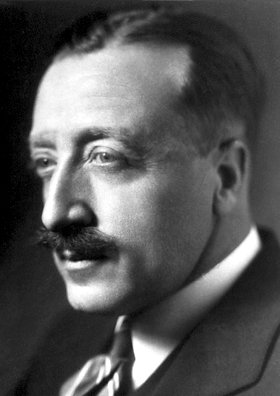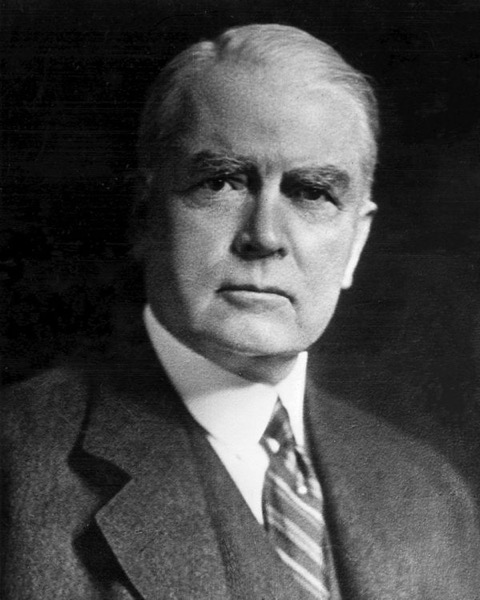
Two Nobel Prize winners from Yonkers: John Howard Winthrop above, in Chemistry, and Dr. John Mott, below an evangelist and long-serving leader of the Young Men’s Christian Association (YMCA), winner of the 1946 Nobel Peace Prize.

By Mary Hoar, City of Yonkers Historian, President Emerita Yonkers Historical Society, recipient of the 2004 Key to History, Member of the Yonkers Landmarks Preservation Board, Chair of Revolutionary Yonkers 250 and President Untermyer Performing Arts Council
Monday, November 18th
November 18, 1777: British Lieutenant-General William Tryon sent Hessians troops to pillage and burn homes in Philipse Manor. They allegedly stripped women and children of clothing, then turned them out into the cold. Old men and boys were led back to the enemy lines wearing very little but the halter the Hessians had put around their necks to lead them. Patriot newspapers condemned Tryon for making war on women and children.
November 18, 1943: Thirty-four Alexander Smith Carpet Company employees received framed certificates for their suggestions to improve war production. Elizabeth Brennan, who passed away before the ceremony, suggested a method to smooth needle heads on looms. Her husband, who also worked for Smith, accepted her certificate. Stanley Karpinski died the night before the ceremony; Smith adopted his suggestion to post his morale-building slogans around its plants. A third employee also did not attend; Harold Zulauf, Jr., was serving in the Marine Corps!
Tuesday, November 19th
November 19, 1776: British troops embarked from the mouth of the Nepperhan River to successfully attack Fort Constitution (Fort Lee).
November 19, 1946: Nobel prizes were awarded to two former Yonkers residents. Dr. John Mott, internationally known religious leader and long-term head of the YMCA, received the Nobel Peace Prize. Dr. John Northrop received the Nobel Prize in Chemistry for his work in preparing enzymes and virus proteins in a pure form. Northrup was a Yonkers High School graduate.
Dr. Mott lived in Yonkers for many years and received his award for the creation of a peace-promoting brotherhood across national boundaries.
Wednesday, November 20th:
November 20, 1932: The two hundred fiftieth anniversary of the Manor House was marked with a reception chaired by former Mayor William J. Wallin; the event was attended by many local notables.
November 20, 1947: Former Warburton Avenue resident Major Edwin Armstrong, inventor of FM radio, appeared before the Federal Communications Commission in Washington to urge the return of FM to a lower radio band. Armstrong contended that testing conclusively showed FM transmitted better in the lower ranges on the radio spectrum, and asked allocation of radio band 44 to 50 megacycles for broadcasting. It had been moved to a higher frequency two years earlier because of faulty data.
Thursday, November 21st:
November 21, 1923: Mayor Walter Taussig was found shot in his garage behind his Park Avenue home; he was found on the floor with a gun in his hand. Mrs. Taussig later stated that if her husband had taken his own life, it was because he was so disappointed at his recent defeat by Ulrich Weisendanger.
Common Council President Albert Watson took over as Mayor, serving until January 1st when Weisendanger was inaugurated.
November 21, 1944: Yonkers school children mounted a “Schools at War” campaign to put schools in the thick of the war our school children wanted to purchase war vehicles by selling War Bonds and Stamps! Prices ranged from $1,950 for ambulances to $8,275 for amphibian “ducks” to $15,000 for primary training planes. Any school selling enough bonds to cover the price of a vehicle had its name inscribed on it. Yonkers children worked to “finish the job,” to bring home their beloved fathers, brothers, uncles and friends.
Friday, November 22nd:
November 22, 1919: The Prince of Wales, later King Edward VIII and Duke of Windsor, decorated three Yonkers men in the 27th Division overseas with British Military Medals. The ceremony took place on the HMS Renown, lying in the Hudson River off Manhattan.
Besides the British Military Medal, Sergeant Angus Robertson of Van Cortlandt Park Avenue also held the Distinguished Service Cross awarded for heroism in action before the Hindenburg Line.
Before receiving the British Military Medal, Thomas Dean of Elinor Place received the Distinguished Service Medal from General Pershing and the Croix de Guerre.
Sergeant William Spencer of Cliff Street was awarded the decoration from the Prince of Wales for his “conspicuous services” during the great war, for his extraordinary bravery under fire in silencing a machine gun nest and killing four Germans. He also held the Distinguished Service Medal and the French Croix de Guerre.
Saturday, November 23rd:
November 23, 1923: In a special arrangement with the Yonkers Trust Company, the Warburton Theatre gave $1 checks to the first 7,000 people buying a ticket for “Spite Corner,” the comedy playing at the Warburton during Thanksgiving week. The check only could be used to open a new account of $10 or more at Yonkers Trust.
November 23, 1943: Otis Elevator was notified our Yonkers plant won the Army-Navy production award for the third time, for its “high achievement in the production of war material.” Notification included a tribute from Under Secretary of War Robert Patterson, commending the men and women employees; he wrote they “set an inspiring example for your fellow Americans on the production front.” The plant was entitled to fly an “Army-Navy E flag” with two white stars.
Sunday, November 24th:
November 24, 1920: Sensational lightweight Seamus O’Brien of Yonkers defeated Benny Cohen of NJ in a 12-round bout at Olympic Park in Newark. Considered one of the most sensational bouts ever staged in Newark, O’Brien was the aggressor throughout the fight. Consensus of the ringside fans was the Yonkers battler won nine rounds and tied in a tenth.
November 24, 1931: Revolvers and other weapons taken from prisoners by officers at the Central Avenue Police Station were dumped into the Hudson River by Patrolman Thomas Cunningham. Cunningham boarded a ferry and dropped them in the middle of the river!
Questions or comments on this column? Email YonkersHistory1646@gmail.com.
For information on the Yonkers Historical Society, Sherwood House and upcoming events, please visit our website www.yonkershistoricalsociety.org, call 914-961-8940 or email info@yonkershistoricalsociety.org.





